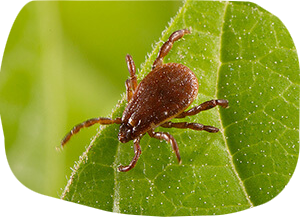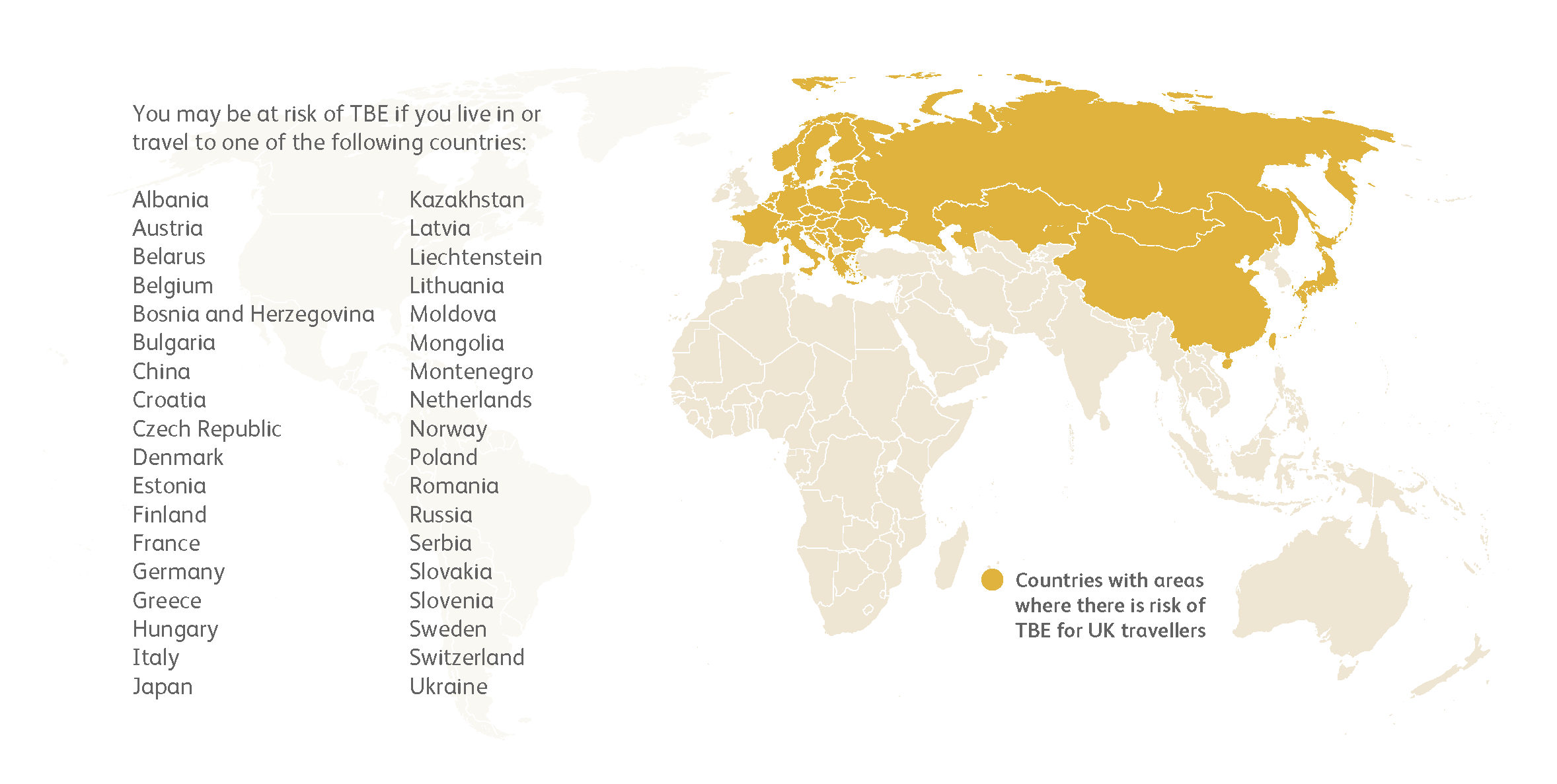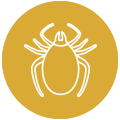Tick-borne encephalitis (TBE)
TBE is an infection of the central nervous system that affects the brain, spinal cord and membranes around them.1 Transmission of TBE to humans most commonly occurs through the bite of an infected tick.1 If you live in or are planning a holiday to a country where there is a known risk of TBE infection, it is important to learn how to identify TBE infection and the actions you can take to reduce your risk.
This website will tell you more about TBE, symptoms, ticks, where you are at risk of TBE infection and the actions you can take.
Know the facts about TBE
1 in 3
Approximately one in three people infected with the TBE virus will develop long-term neurological complications.1
No specific treatment
There is no specific treatment for TBE, and unlike Lyme disease (which is also transmitted by ticks) it cannot be treated with antibiotics.2

Are you in or travelling to a TBE risk area?
Whether you are living in a country where TBE exists, planning a holiday or travelling in the near future to a country with known risk of TBE infection, it is recommended that you consider taking precautions and know how to identify TBE infection.
Find out where you are at risk of TBE and learn about how to help protect yourself below:


Information contained within is based on the NaTHNaC website's travel guidance for UK travellers as of November 2022.5
Ticks infected with the TBE virus are not confined to one country, with reports of ticks from across Europe, including some parts of the UK and Asia. Human cases of TBE have been reported in humans in over 33 countries.3 You may be at risk of TBE if you live in or travel to one of the following countries: Albania, Austria, Belarus, Belgium, Bosnia and Herzegovina, Bulgaria, China, Croatia, Czech Republic, Denmark, Estonia, Finland, France, Germany, Greece, Hungary, Italy, Japan, Kazakhstan, Latvia, Liechtenstein, Lithuania, Moldova, Mongolia, Montenegro, Netherlands, Norway, Poland, Romania, Russia, Serbia, Slovakia, Slovenia, Sweden, Switzerland, Ukraine.4
TBE may not have been found in all areas of a country, please check local information.
It's not just your location that might put you at risk of TBE infection, find out more about what puts you at risk of TBE here.
It's not just your location that might put you at risk of TBE infection, find out more about what puts you at risk of TBE here.
You can reduce your risk of developing TBE by taking precautions to avoid being bitten by an infected tick when in TBE risk areas.5
Vaccination is one preventative option to help protect against TBE and is recommended for anyone who may be at risk of TBE through their work or travels, particularly those planning to do outdoor activities that increase your risk of coming into contact with infected ticks such as visiting rural areas, walking, hiking, cycling or camping.3,5
For any travel-related health advice, try to speak to your pharmacist, doctor, nurse or healthcare professional at least 1 month before travelling.5
For any travel-related health advice, try to speak to your pharmacist, doctor, nurse or healthcare professional at least 1 month before travelling.5
You can view or download a leaflet with information on tick-borne encephalitis, where you are at risk, symptoms of TBE and ways to help protect you from infection here.





